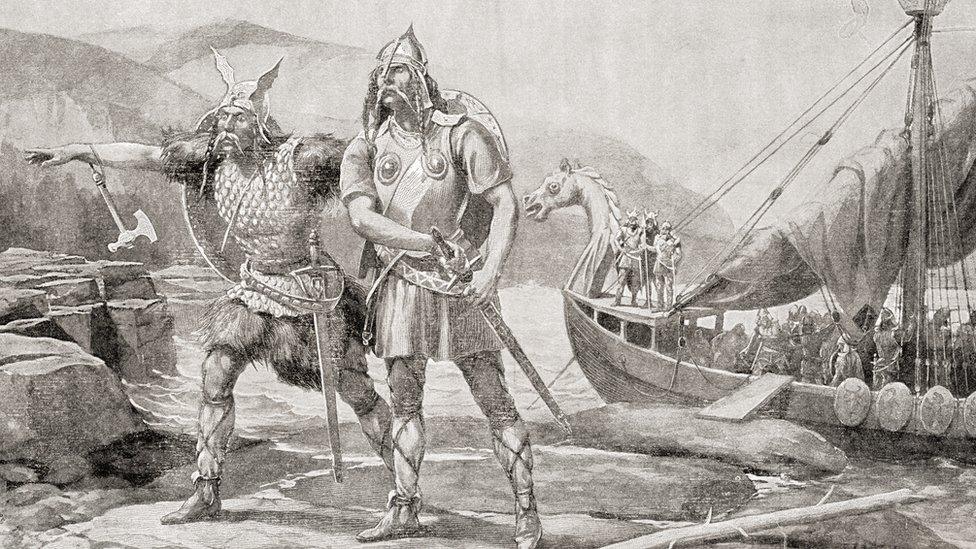Archaeologists find 'Viking drinking hall' during Orkney dig
- Published
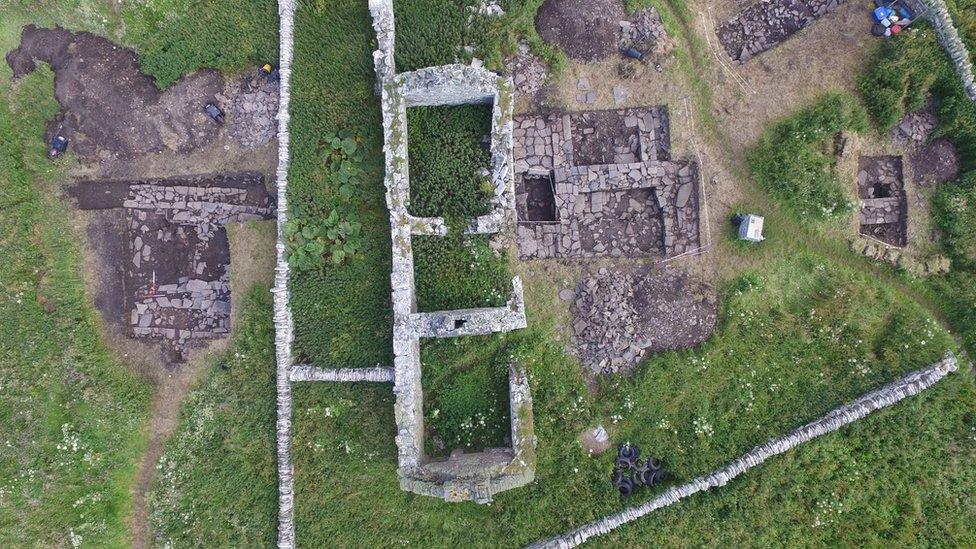
The site was explored for a number of years before the discovery
Archaeologists have found what could be a Viking drinking hall during a dig in Orkney.
The site, at Skaill Farmstead in Westness, Rousay, is believed to date back to the 10th Century and may have been used by the chieftain Sigurd.
Stone walls, benches, pottery and a fragment of a Norse bone comb were found during the excavation.
It is hoped the site could reveal much about diet, farming and fishing from the Norse period to the 19th Century.
Viking links
Orkney was once a seat of power in the Norse empire and its Viking heritage - such as place names and architecture - remains evident today.
Genetic studies have found many from the archipelago are descended from those who settled on the islands in the late 8th Century.
Westness is mentioned in the Orkneyinga Saga - a historical narrative of the archipelago - as the home of Earl Sigurd, a powerful 12th Century chieftain.
The name Skaill, which is a Norse word for "hall", suggests the site could have been used for drinking and was high-status.
The hall is believed to date sometime between the 10th and 12th centuries and was discovered below a more recent farmstead.
The present farm dates to the 18 or 19th centuries and was part of the Rousay clearances during the mid-19th Century.
A team from the UHI Archaeology Institute, residents and students have been digging at the site for a number of years to find the building.
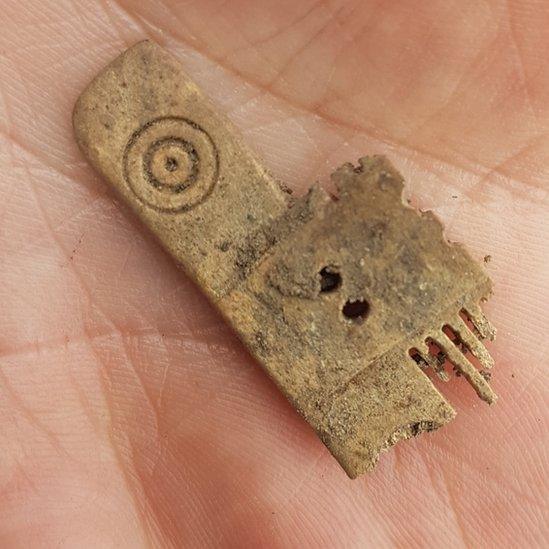
The Norse bone comb fragment from the excavation site
Dan Lee, co-director of the excavation project, said "The exciting news this season is that we have now found the hall at Skaill, as the place name suggests.
"You never know but perhaps Earl Sigurd himself sat on one of the stone benches inside the hall and drank a flagon of ale."
'Millennia of middens'
The team investigating the site say "substantial" stone walls were found 5.5 metres apart, with internal features including stone benches along either side.
It is not fully uncovered but appears to be more than 13 metres long.
Finds have included soapstone from Shetland, pottery and a bone spindle whorl, while a fragment of a Norse bone comb was also unearthed.
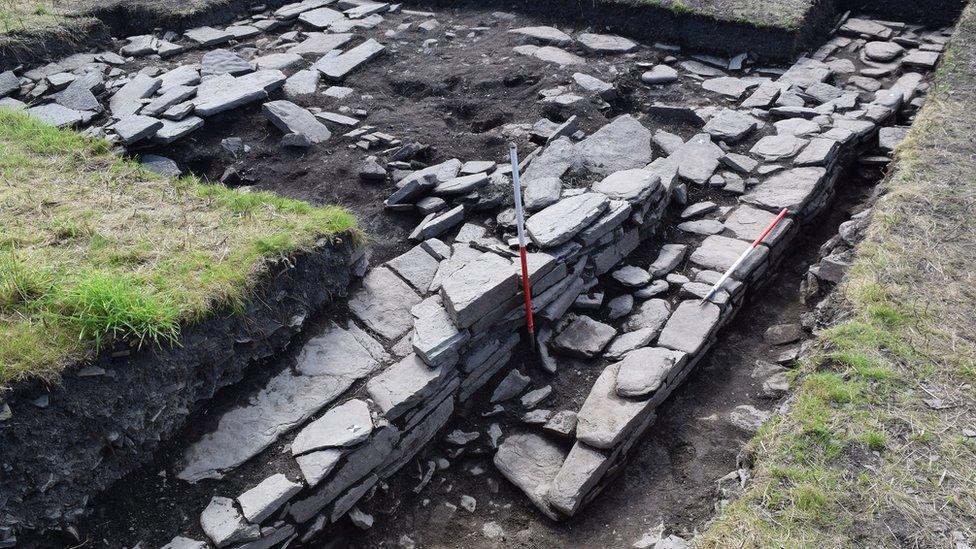
Stone walls and stone benches were found during the excavation
Project co-director Dr Ingrid Mainland said "We have recovered a millennia of middens which will allow us an unparalleled opportunity to look at changing dietary traditions, farming and fishing practices from the Norse period up until the 19th Century."
The excavation is part of the Landscapes of Change - Archaeologies of the Rousay Clearances and Westness Estate project.
It aims to explore the farmstead at Skaill from the Norse period to its abandonment in the 19th Century.
The islands remained part of a Scandinavian kingdom until 1468 when they were pawned to the Scottish Crown by Christian I of Denmark.
- Published28 May 2019
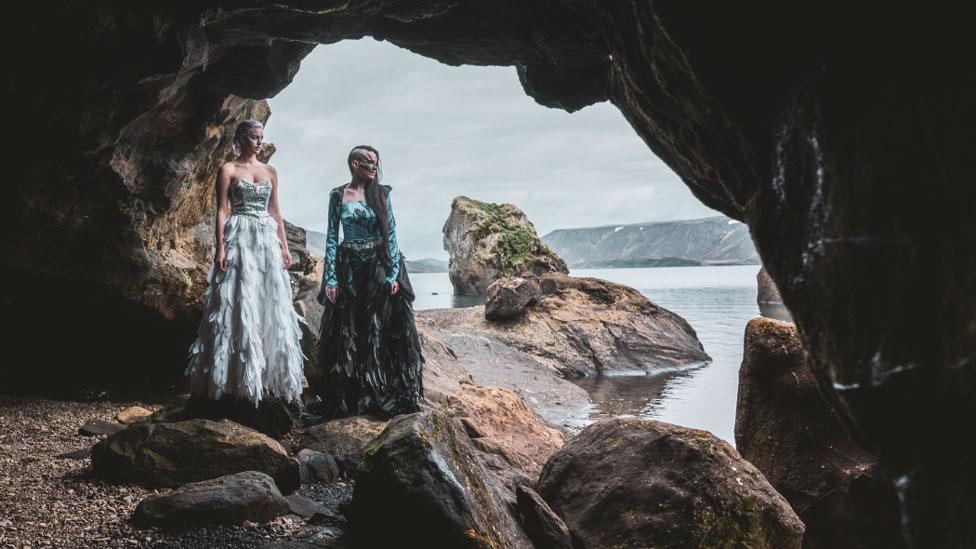
- Published17 November 2018
